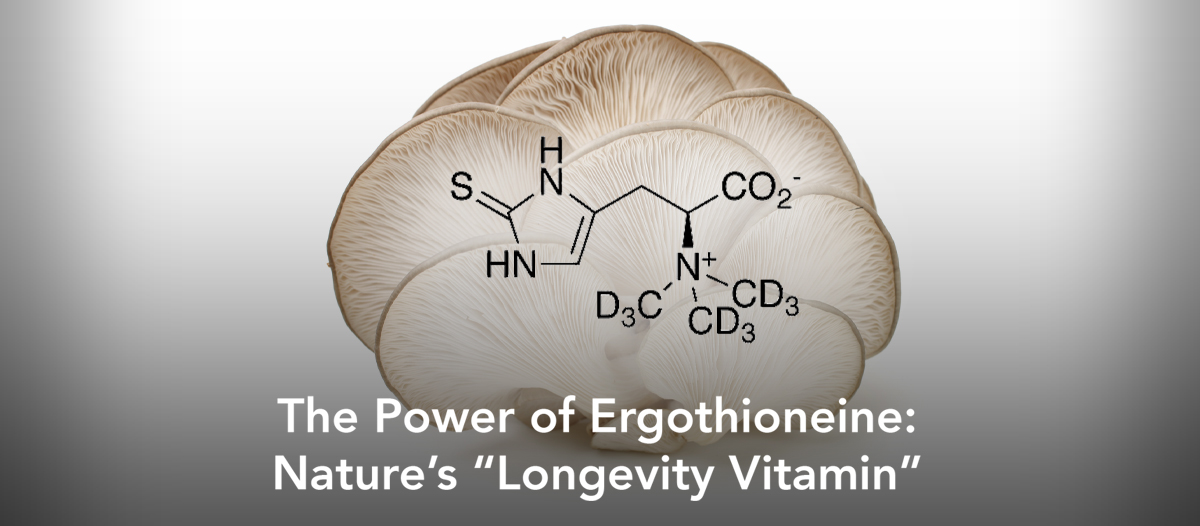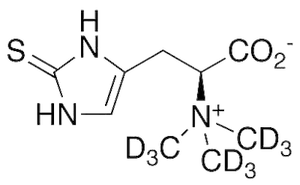Ergothioneine: The Longevity Vitamin? – Quick Summary
Ergothioneine is a rare but essential antioxidant with profound anti-aging benefits. This blog explores what makes ergothioneine unique, how it supports brain and mitochondrial health, and why some scientists consider it a potential “longevity vitamin.”
Key Takeaways:
✔ Ergothioneine protects cells from oxidative stress and aging
✔ It supports brain, immune, and mitochondrial health
✔ Best sources include mushrooms, organ meats, and certain legumes
Now, let’s get into the details!
The Power of Ergothioneine: Nature’s “Longevity Vitamin”
by Mark J Kaylor
Introduction: A Rising Star in the World of Nutrients
Ergothioneine is quickly becoming one of the most talked-about nutrients in health and wellness circles, and for good reason. Often referred to as the “longevity vitamin,” ergothioneine stands out due to its powerful antioxidant properties, unique mechanisms of action, and potential role in promoting healthspan and lifespan. Despite being discovered over a century ago, it is only in recent years that researchers have begun to unlock its profound potential for human health. So what exactly is ergothioneine, where can we find it, and how does it work in the body?
What Is Ergothioneine? A Nutrient with a Unique Function
Ergothioneine is a sulfur-containing amino acid that is derived from the amino acid histidine. Its chemical structure allows it to act as an antioxidant, a molecule that protects cells from oxidative stress and damage. Ergothioneine is particularly interesting because it behaves differently from other well-known antioxidants like vitamin C or E. It not only scavenges free radicals, but it also has the ability to accumulate in tissues where oxidative stress and damage are the highest.
Unlike some other nutrients, ergothioneine is not synthesized by the human body, meaning we need to obtain it from external sources like food or supplements. However, once ergothioneine is absorbed, it has a high affinity for specific transporters that ensure it is delivered to areas of the body where it is needed most, such as the brain, liver, kidneys, and eyes. This targeted action makes it a key nutrient for protecting cells and tissues from damage that could lead to chronic diseases and aging.
Where Does Ergothioneine Come From?
Ergothioneine originates from a variety of fungi and bacteria that reside in soil. Certain plants, mushrooms, and even animals accumulate it by interacting with these microorganisms. This makes ergothioneine somewhat unique in its availability, as it isn’t as widely found in the plant and animal kingdoms as other nutrients. Here are some of the most ergothioneine-rich foods:
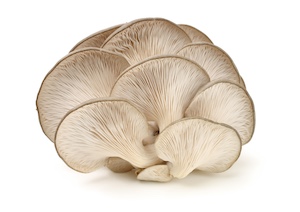 1. Mushrooms: Nature’s Ergothioneine Powerhouse
1. Mushrooms: Nature’s Ergothioneine Powerhouse
Mushrooms, particularly wild and medicinal varieties, are the richest dietary source of ergothioneine. For instance, shiitake, maitake, and oyster mushrooms contain significant amounts of this amino acid. In fact, certain species of mushrooms can contain over 10 milligrams of ergothioneine per 100 grams.
When it comes to natural sources of ergothioneine, mushrooms stand out as the richest providers. Certain species of mushrooms are especially high in ergothioneine, with wild and medicinal varieties leading the way. Oyster mushrooms (Pleurotus ostreatus), shiitake mushrooms (Lentinula edodes), and king bolete (Boletus edulis) are some of the top contenders. For example, oyster mushrooms can contain up to 13 mg of ergothioneine per 100 grams of fresh weight, making them one of the highest natural sources of this potent antioxidant. Shiitake mushrooms also rank highly, with approximately 7-13 mg per 100 grams. Other common edible mushrooms like white button mushrooms (Agaricus bisporus) contain about 5 mg per 100 grams. These levels make mushrooms a potent dietary source of ergothioneine, especially for those looking to increase their intake of this longevity-promoting compound.
2. Animal Products: Secondary Sources via the Food Chain
Animals, particularly those that graze on plants grown in ergothioneine-rich soils, also accumulate ergothioneine. Meats like liver, kidney, and certain muscle tissues from animals such as cattle and poultry contain moderate levels of the compound. Eggs and dairy products may also provide trace amounts.
3. Beans and Grains: Plant-Based Ergothioneine
While mushrooms provide the highest concentrations, some legumes and grains are also good sources. Black beans, kidney beans, and oat bran contain small but notable levels of ergothioneine, contributing to its presence in plant-based diets.
How Does the Body Utilize Ergothioneine?
Once ergothioneine enters the bloodstream through dietary sources or supplements, it binds to a specific transporter protein called OCTN1 (organic cation transporter 1). This transporter is responsible for shuttling ergothioneine into cells and tissues, where it can exert its antioxidant and cytoprotective effects. OCTN1 transporters are especially abundant in organs that are frequently exposed to oxidative stress, such as the brain, liver, heart, kidneys, and lungs.
Ergothioneine’s antioxidant properties come from its ability to neutralize harmful molecules known as reactive oxygen species (ROS), which are byproducts of cellular metabolism. If left unchecked, ROS can damage DNA, proteins, and cellular membranes, leading to premature aging and the development of chronic diseases such as cancer, cardiovascular disease, and neurodegenerative disorders.
Unlike other antioxidants, ergothioneine doesn’t become “spent” after it neutralizes free radicals. It can regenerate itself, meaning it can continue to provide protection over a longer period of time compared to other antioxidants that get depleted after one use. Additionally, ergothioneine is highly stable and resistant to breakdown, allowing it to function efficiently even in conditions where other antioxidants might falter.
Why Is Ergothioneine Called the “Longevity Vitamin”?
The title of “longevity vitamin” comes from a growing body of evidence linking ergothioneine to aging, disease prevention, and extended lifespan. Though it is not officially classified as a vitamin, some researchers argue that ergothioneine may be as essential to health as other well-known vitamins like vitamin C or vitamin E, due to its profound protective effects.
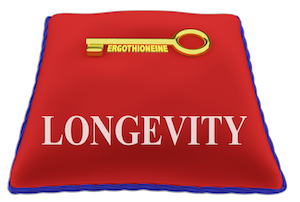 Here’s why ergothioneine has earned this name:
Here’s why ergothioneine has earned this name:
1. Mitochondrial Protection: The Key to Energy and Longevity
Mitochondria, the powerhouses of the cell, are essential for producing energy but are also highly vulnerable to oxidative damage. Over time, this damage can lead to mitochondrial dysfunction, which is a hallmark of aging and many age-related diseases. Ergothioneine has been shown to accumulate in mitochondria and protect them from damage, potentially preserving energy production and delaying cellular aging.
 2. Brain Health and Neuroprotection
2. Brain Health and Neuroprotection
Neurodegenerative diseases such as Alzheimer’s and Parkinson’s are linked to oxidative stress and inflammation in the brain. Ergothioneine crosses the blood-brain barrier and has been shown to reduce oxidative damage in brain cells, potentially delaying the onset or progression of neurodegenerative disorders. A 2016 study in Biochemical Pharmacology found that individuals with higher levels of ergothioneine in their blood had a lower risk of developing cognitive impairment and dementia.
3. Reduced Risk of Chronic Diseases
Oxidative stress is a major contributor to a wide range of chronic conditions, including cardiovascular disease, diabetes, and cancer. Ergothioneine’s ability to reduce oxidative damage and inflammation makes it a valuable ally in disease prevention. For example, research has suggested that ergothioneine may help prevent the oxidation of LDL cholesterol, a key step in the development of atherosclerosis.
4. Anti-Inflammatory Properties
Chronic inflammation is a key contributor to immune system dysregulation. When the body’s inflammatory response becomes overactive, it can lead to issues such as autoimmunity or chronic diseases that weaken the immune system’s ability to respond to infections effectively. Ergothioneine’s anti-inflammatory properties help regulate the body’s immune response, reducing the risk of excessive inflammation while still allowing for a robust response to actual pathogens.
Studies suggest that ergothioneine may help downregulate pro-inflammatory cytokines—molecules that promote inflammation—such as TNF-alpha and IL-6. This modulation can help maintain a balanced immune response, preventing immune cells from becoming overactive and contributing to chronic inflammation.
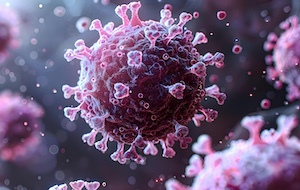 5. Ergothioneine and Immune Aging (Immunosenescence)
5. Ergothioneine and Immune Aging (Immunosenescence)
As we age, the immune system gradually loses its efficiency, a process known as immunosenescence. This decline is partly due to increased oxidative stress, which damages immune cells and makes them less effective. Ergothioneine’s antioxidant capacity is thought to help mitigate this process by protecting immune cells from oxidative stress and enhancing their resilience.
Additionally, ergothioneine may help preserve mitochondrial function within immune cells. Mitochondria are crucial for energy production, and immune cells rely heavily on this energy to carry out their functions. By protecting mitochondria from oxidative damage, ergothioneine ensures that immune cells can continue to generate the energy needed to mount effective responses to infections, even in later stages of life.
With its ability to defend against oxidative stress, regulate inflammation, and support key immune organs like the liver and bone marrow, ergothioneine holds significant promise as a nutrient that can help bolster immune function, especially as we age.
6. Ergothioneine: The Guardian Antioxidant Your Cells Need
At the heart of ergothioneine’s powerful health benefits is its exceptional antioxidant activity. Unlike other antioxidants that work broadly in the body, ergothioneine has a unique ability to accumulate in tissues and organs most vulnerable to oxidative stress, such as the brain, liver, kidneys, and even the mitochondria within cells. This targeted action allows it to directly neutralize harmful free radicals, molecules that can damage DNA, proteins, and cellular structures if left unchecked. By reducing oxidative damage, ergothioneine plays a key role in slowing cellular aging, protecting tissues, and reducing the risk of chronic diseases such as cancer, neurodegenerative disorders, and cardiovascular conditions.
What sets ergothioneine apart is its stability and ability to regenerate, meaning it can continue to fight oxidative stress over longer periods compared to other antioxidants that are quickly depleted. This makes it a potent long-term protector of cellular health. Studies have shown that tissues with high concentrations of ergothioneine are better equipped to fend off oxidative stress, leading to healthier aging and improved resilience against environmental toxins and metabolic stressors. As oxidative stress is a major driver of aging and disease, ergothioneine’s antioxidant activity is one of the key reasons it’s known as the “longevity vitamin.”
Ergothioneine for Your Skin: The Antioxidant Powerhouse in Topical Skincare
Ergothioneine is primarily studied for its internal health benefits, but its potential for topical use has also garnered attention in recent years, especially in the skincare industry. The antioxidant properties of ergothioneine suggest that it could be a beneficial ingredient in topical formulations aimed at protecting the skin from oxidative stress, environmental damage, and aging. Here’s how ergothioneine may work when used topically:
Potential Benefits of Topical Ergothioneine
Protection from UV Damage: Ergothioneine’s antioxidant properties may help protect the skin from harmful UV rays by neutralizing free radicals produced by UV exposure. This could potentially reduce the risk of sunburn, skin aging (photoaging), and skin cancer caused by UV-induced oxidative stress.
Anti-Aging Effects: Oxidative stress is one of the primary drivers of skin aging, leading to wrinkles, fine lines, and a loss of elasticity. As an antioxidant, ergothioneine may help mitigate the effects of oxidative damage, thus supporting more youthful skin by preserving collagen and preventing the breakdown of skin structure.
Anti-Inflammatory Properties: Ergothioneine may help reduce inflammation in the skin, which can be beneficial for people dealing with skin conditions such as acne, eczema, or rosacea.
Skin Barrier Support: Ergothioneine’s ability to protect cellular integrity could help strengthen the skin barrier, potentially improving moisture retention and reducing the appearance of dryness or irritation.
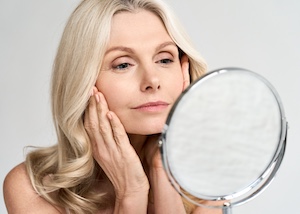 Ergothioneine in Skincare Products
Ergothioneine in Skincare Products
Some skincare products, particularly anti-aging creams and sunscreens, have started to incorporate ergothioneine as a key ingredient due to its protective properties. It is often combined with other antioxidants such as vitamin C or E to enhance the overall protective effects of the formulation. While research into topical ergothioneine is still relatively new, early studies and anecdotal evidence suggest that it can be a beneficial addition to topical skincare for its antioxidant and anti-inflammatory benefits.
Absorption and Effectiveness
One question that arises is how effectively ergothioneine is absorbed when applied topically. While its ability to be transported into cells via the OCTN1 transporter is well- documented for internal use, more research is needed to fully understand how well ergothioneine penetrates the skin barrier when applied topically. However, some studies indicate that it can be absorbed and utilized by skin cells, offering localized protection against environmental stressors.
Can Ergothioneine Be Used Topically?
The answer is “Yes”, ergothioneine can be used topically and is already being incorporated into some skincare products. Its antioxidant and anti-inflammatory properties make it a promising ingredient for protecting skin health, reducing signs of aging, and shielding against environmental damage. As more research is conducted, the potential of ergothioneine in skincare is likely to expand, and it could become a staple ingredient in anti-aging and protective formulations.
Boosting Ergothioneine Absorption: How to Maximize Its Bioavailability
Thankfully, ergothioneine is orally bioavailable, meaning it can be effectively absorbed through the digestive system when consumed via food or supplements. After ingestion, it is transported into the bloodstream by the OCTN1 transporter, a highly specialized protein responsible for moving ergothioneine into various tissues and organs, including the brain, liver, kidneys, and immune cells. This efficient transport mechanism ensures that ergothioneine reaches the areas where it is most needed, particularly where oxidative stress is highest.
Boosting Ergothioneine Absorption: How to Maximize Its Bioavailability
Thankfully, ergothioneine is orally bioavailable, meaning it can be effectively absorbed through the digestive system when consumed via food or supplements. After ingestion, it is transported into the bloodstream by the OCTN1 transporter, a highly specialized protein responsible for moving ergothioneine into various tissues and organs, including the brain, liver, kidneys, and immune cells. This efficient transport mechanism ensures that ergothioneine reaches the areas where it is most needed, particularly where oxidative stress is highest.
How to Possibly Increase Ergothioneine’s Bioavailability
Although ergothioneine is already bioavailable, there are a few strategies that may enhance its absorption or maximize its benefits:
Pairing with Fats:
Ergothioneine, like many other bioactive compounds, may be better absorbed when consumed with healthy fats. Combining ergothioneine- rich foods like mushrooms with fats such as olive oil, avocado, or nuts could improve the compound’s bioavailability and help deliver it to cells more efficiently.
Combining with Other Antioxidants:
While research is still emerging, some studies suggest that combining ergothioneine with other antioxidants (e.g., vitamin C, vitamin E, or glutathione) may amplify its overall protective effects in the body. This could improve the cellular antioxidant capacity and create a synergistic effect for better utilization.
Supplements with Advanced Formulations:
Some ergothioneine supplements are formulated with bio-enhancers, compounds that can increase nutrient absorption. For example, adding piperine (an extract from black pepper) or other absorption-enhancing compounds to an ergothioneine supplement may boost its bioavailability.
Probiotic Support:
Gut health plays a role in the absorption of many nutrients, including amino acids like ergothioneine. Ensuring a healthy gut microbiome through the use of probiotics or prebiotics may enhance the digestive system’s ability to absorb ergothioneine from food or supplements more effectively.
Overall, ergothioneine is naturally bioavailable, but combining it with healthy fats, complementary antioxidants, or gut-supporting strategies could potentially enhance its absorption and efficacy.
Are There Any Side Effects or Drug Interactions?
So far, research indicates that ergothioneine is very safe for consumption, both from dietary sources and as a supplement. It has no known toxicity, even at high doses. However, as with all supplements, it’s important to consult with a healthcare professional before taking ergothioneine, especially if you are pregnant, breastfeeding, or taking other medications.
 Currently, there are no documented drug interactions with ergothioneine. However, individuals taking antioxidant supplements or medications for oxidative stress-related conditions should be mindful of potential synergies or interactions, and it’s always wise to consult a doctor before adding a new supplement to your routine.
Currently, there are no documented drug interactions with ergothioneine. However, individuals taking antioxidant supplements or medications for oxidative stress-related conditions should be mindful of potential synergies or interactions, and it’s always wise to consult a doctor before adding a new supplement to your routine.
The Nutrient of the Future?
With its profound antioxidant and protective properties, ergothioneine is rapidly gaining recognition as a critical nutrient for health and longevity. As more research uncovers its wide range of benefits, ergothioneine is likely to become a key supplement in the quest to promote a long, healthy, and vibrant life. Whether you’re looking to protect your brain, enhance your cardiovascular health, or support mitochondrial function, ergothioneine may be a natural ally worth exploring.
References:
- Cheah, I. K., & Halliwell, B. (2012). Ergothioneine; antioxidant potential, physiological function and role in disease. Biochimica et Biophysica Acta (BBA) – Molecular Basis of Disease.
- Paul, B. D., & Snyder, S. H. (2010). The unusual amino acid l-ergothioneine is a physiologic cytoprotectant. Cell Death & Differentiation. Link
- Kalaras, M. D., Richie, J. P., Calcagnotto, A., & Beelman, R. B. (2017). Mushrooms: A rich source of the antioxidants ergothioneine and glutathione. Food Chemistry.
- Halliwell, B., & Cheah, I. K. (2013). Ergothioneine – a diet-derived antioxidant with therapeutic potential. FEBS Letters.
- Servillo, L., D’Onofrio, N., Balestrieri, M. L., & Giovane, A. (2017). Ergothioneine antioxidant function: from chemistry to cardiovascular therapeutic potential. Journal of Nutritional Biochemistry.
- Katsube M, Ishimoto T, Fukushima Y, Kagami A, Shuto T, Kato Y. Ergothioneine promotes longevity and healthy aging in male mice. Geroscience. 2024 Aug;46(4):3889-3909
Mark J. Kaylor is a passionate advocate for holistic health and natural remedies, with a focus on extending both lifespan and healthspan. As the founder of the Radiant Health Project and host of Radiant Health Podcast, Mark blends in-depth research with traditional wisdom to empower others on their journey to vibrant health. Through his writing and speaking, he shares insights into the transformative power of herbs, nutrition, and lifestyle practices.
Disclaimer: All information and results stated here is for educational and entertainment purposes only. The information mentioned here is not specific medical advice for any individual and is not intended to be used for self-diagnosis or treatment. This content should not substitute medical advice from a health professional. Always consult your health practitioner regarding any health or medical conditions.



